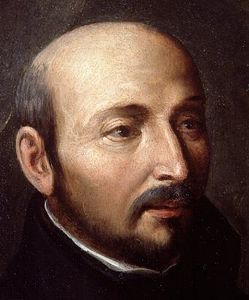A Quote by Charles Churchill
The rigid saint, by whom no mercy's shown To saints whose lives are better than his own.
Related Quotes
The wind is blowing; those vessels whose sails are unfurled catch it, and go forward on their way, but those which have their sails furled do not catch the wind. Is that the fault of the wind? Is it the fault of the merciful Father, whose wind of mercy is blowing without ceasing, day and night, whose mercy knows no decay, is it His fault that some of us are happy and some unhappy? We make our own destiny. His sun shines for the weak as well as for the strong. His wind blows for saint and sinner alike. He is the Lord of all, the Father of all, merciful, and impartial.
A saint a real saint never does anything, a martyr does something but a really good saint does nothing, and so I wanted to have Four Saints who did nothing and I wrote the Four Saints In Three Acts and they did nothing and that was everything. Generally speaking anybody is more interesting doing nothing than doing something.
I have always wanted to become a saint. Unfortunately, when I have compared myself with the saints, I have always found that there is the same difference between the saints and me as there is between a mountain whose summit is lost in the clouds and a humble grain of sand trodden underfoot by passers-by.
How do men feel whose whole lives (and many men's lives are) are lies, schemes, and subterfuges? What sort of company do they keep when they are alone? Daily in life I watch men whose every smile is an artifice, and every wink is an hypocrisy. Doth such a fellow where a mask in his own privacy, and to his own conscience?
If God causes you to suffer much it is a sign that He has great designs for you and that He certainly intends to make you a saint. And if you wish to become a great saint, entreat Him yourself to give you much opportunity for suffering; for there is no wood better to kindle the fire of holy love than the wood of the cross, which Christ used for His own great sacrifice of boundless charity.
The Saint whose water can light lamps, the clairvoyant whose lapse in recall is the breath of God, the true paranoid for whom all is organized in spheres joyful or threatening about the central pulse of himself, the dreamer whose puns probe ancient fetid shafts and tunnels of truth all act in the same special relevance to the word, or whatever it is the word is there, buffering, to protect us from. The act of metaphor than was a thrust at truth and a lie, depending where you were: inside, safe or outside, lost.
Only the man who has had to face despair is really convinced that he needs mercy. Those who do not want mercy never seek it. It is better to find God on the threshold of despair than to risk our lives in a complacency that has never felt the need of forgiveness. A life that is without problems may literally be more hopeless than one that always verges on despair.
Before prayer, endeavour to realise Whose Presence you are approaching and to Whom you are about to speak, keeping in mind Whom you are addressing. If our lives were a thousand times as long as they are we should never fully understand how we ought to behave towards God, before Whom the very Angels tremble, Who can do all He wills, and with Whom to wish is to accomplish.






































